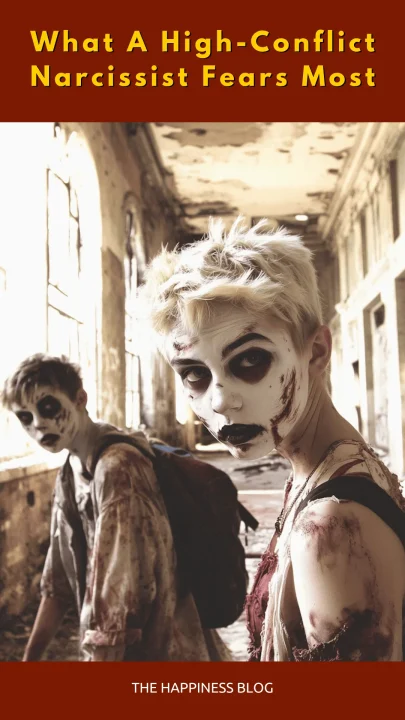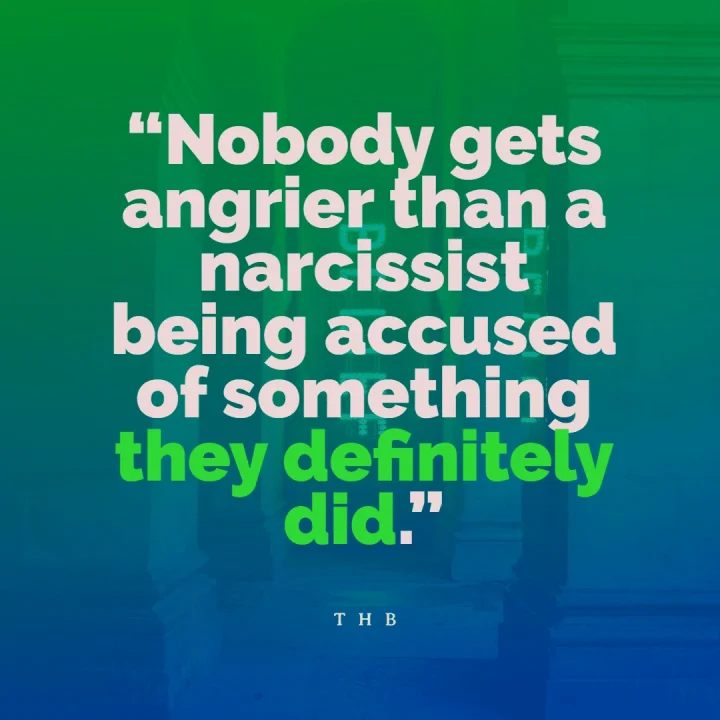Today's Wednesday • 4 mins read
A Narcissistic High-Conflict Personality (HCP) is someone who shows:
- Extreme arrogance, entitlement, and a relentless need for admiration, combined with a pattern of intense conflict and blaming others.
- They lack empathy, react aggressively to criticism, and see the world in black-and-white terms—either superior or worthless.
Unlike typical narcissists, HCPs stay ready to escalate conflicts with anyone. They simply view backing out of a conflict as a prestige issue.
This makes them particularly destructive, in relationships, workplaces, and any other social settings.
What A High-Conflict Narcissist Fears Most?
The deepest fear of a high-conflict narcissist is being disrespected and seen as inferior.
At the core of a Narcissistic High-Conflict Personality (HCP) is this all-consuming fear of being perceived by others as weak, unimportant, or inferior.
This deep-seated insecurity is guarded by a defense mechanism, built from an inflated sense of self-importance and relentless external admiration.

What’s The Narcissistic Paradox?
High-conflict narcissists can be extremely charming and persuasive at first, but their actual nature is something else. They:
- have a strong sense of superiority
- feel that the rules do not apply to them
- demand constant admiration and respect
- do not take responsibility for their mistakes
- believe they are exceptional and above others
- openly demean and insult others to feel “higher”
- lack emotional empathy and dismiss others’ feelings
- attack those who challenge, offer feedback, or spot flaws in them.
Ironically, their arrogance, entitlement, and constant belittling of others often produce the very outcome they fear most—disrespect and rejection.
Because they relentlessly seek dominance, praise, and control, they alienate those around them, making others see them as petty, insecure, or even pathetic rather than superior.
Why You Shouldn’t Try To Teach Them A Lesson?
If you have a high-conflict narcissist in your life, you may instinctively want to knock them down a peg—to expose their flaws, insult them in return, or outright humiliate them.
However, don’t.
Directly confronting and downsizing a narcissistic HCP’s insecurity can be extremely dangerous. They can very often retaliate with intense rage, personal attacks, and long-term vendettas.
What angers the high-conflict narcissist? They lash out when someone stokes their deepest fears of being proven wrong or inferior. They perceive it as utter disrespect. So, avoid their rage triggers.

Why Do They Fear Inferiority So Deeply?
- Shaky Self-Esteem – Despite projecting extreme confidence, many narcissistic HCPs have a fragile sense of self-worth. Their entire identity is built on external validation, so any sign of disrespect or rejection feels like a catastrophic threat.
- All-or-Nothing Thinking – Narcissists see the world in black-and-white: either they are admired or they are worthless. This makes them hypersensitive to even minor criticisms.
- Lack of Emotional Regulation – Unlike well-adjusted individuals, narcissistic HCPs lack the ability to process rejection in a healthy way. Instead of reflecting and adjusting, they lash out, blame others, or engage in revenge-seeking behavior.
- Social Power & Control – To maintain their sense of superiority, they try to control how others see them. Losing control over their image—whether through public embarrassment, criticism, or someone else stealing the spotlight—feels unbearable.
What Happens When They Feel Disrespected?
When a narcissistic HCP perceives disrespect or inferiority, they respond with:
- Narcissistic Rage – Explosive anger, personal attacks, and an attempt to intimidate or humiliate their “opponent.”
- Revenge & Smear Campaigns – Spreading rumors, sabotaging careers, or turning others against the person who “disrespected” them.
- Victimhood & Manipulation – Playing the victim, twisting the narrative, and seeking sympathy to regain control.
- Withdrawal & Silent Treatment – Some narcissists retreat and refuse to acknowledge the person who “offended” them, effectively punishing them with silence.
How to Handle Their Fear of Disrespect?
- Do Not Engage in Insulting Them Back – Retaliating only escalates their hostility and makes you a Target of Blame.
- Use Neutral, Respectful Language – Avoid triggering their insecurities by keeping interactions professional and emotionally neutral.
- Set Clear Boundaries – Respect their need for acknowledgment, but do not let them manipulate you into excessive praise or submission.
- Stay Calm & Detached – Their worst fear is losing control. So your staying calm, rational, and unimpressed will often frustrate their attempts to provoke you.
Final Words
Narcissistic high-conflict people can be unpredictable. You can’t be sure if your words will make them take offense.
If you feel fear at a certain time around them, pay close attention. Fear can be useful if you know what it’s trying to tell you. To know more, read The Gift of Fear: 7 Pre-Signs of Violence Most People Miss.
Your best strategy should always be not to feed their fears or their ego. Simply maintain your distance, enforce strict boundaries, and refuse to be pulled into their emotional games.
√ Also Read: 5 Weaknesses of A Narcissist & 10 Surprising Truths About Narcissism.
√ Please share it with someone if you found this helpful.